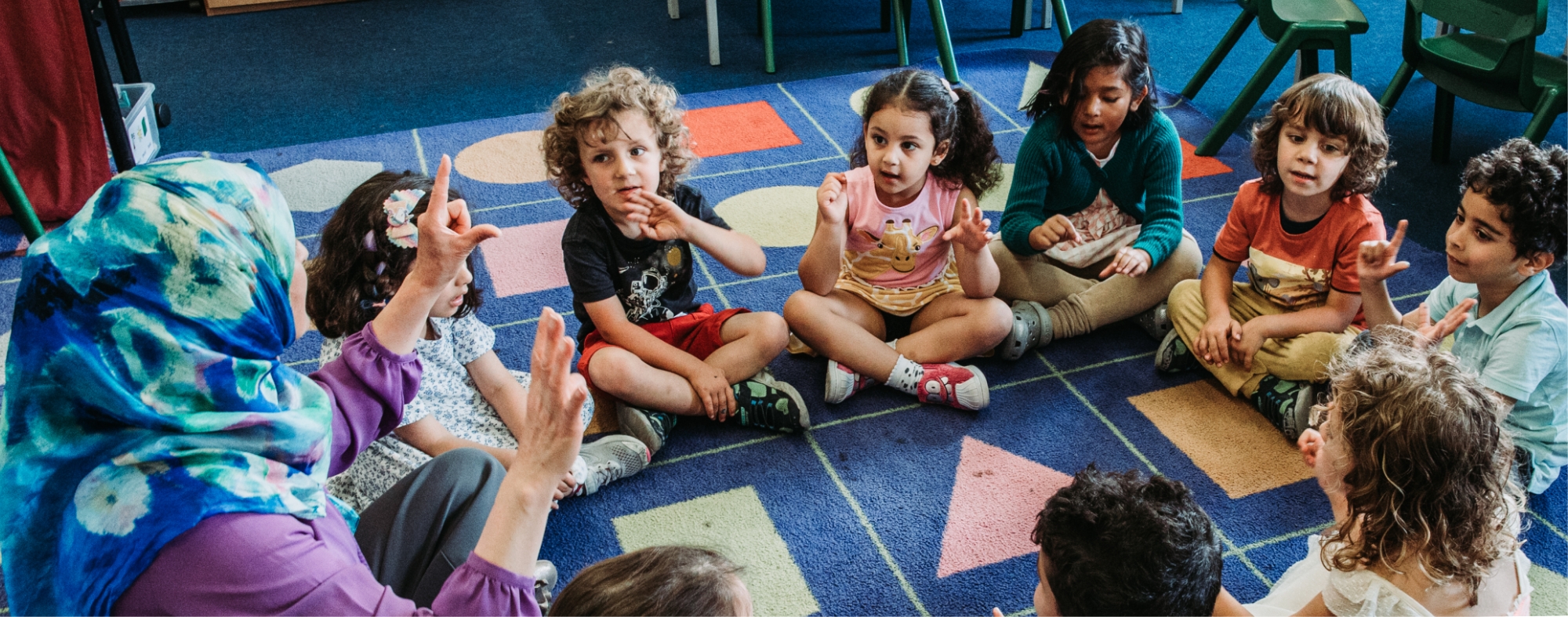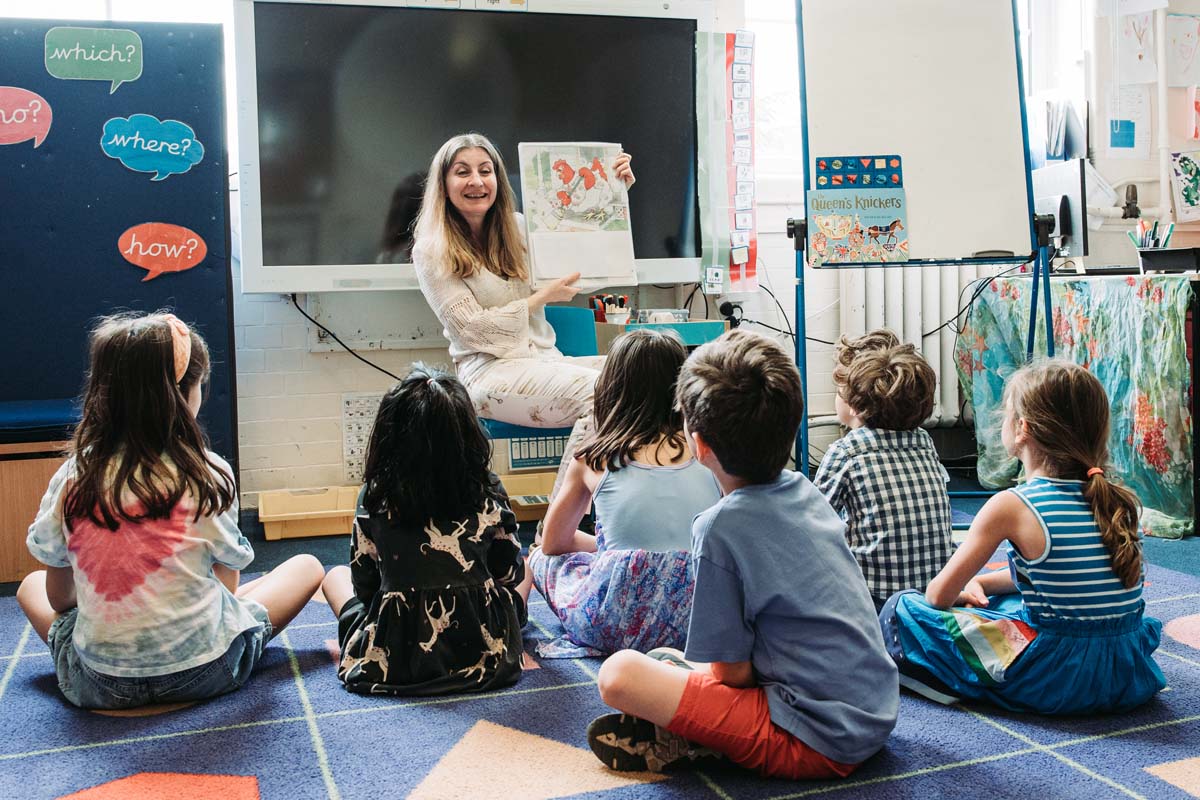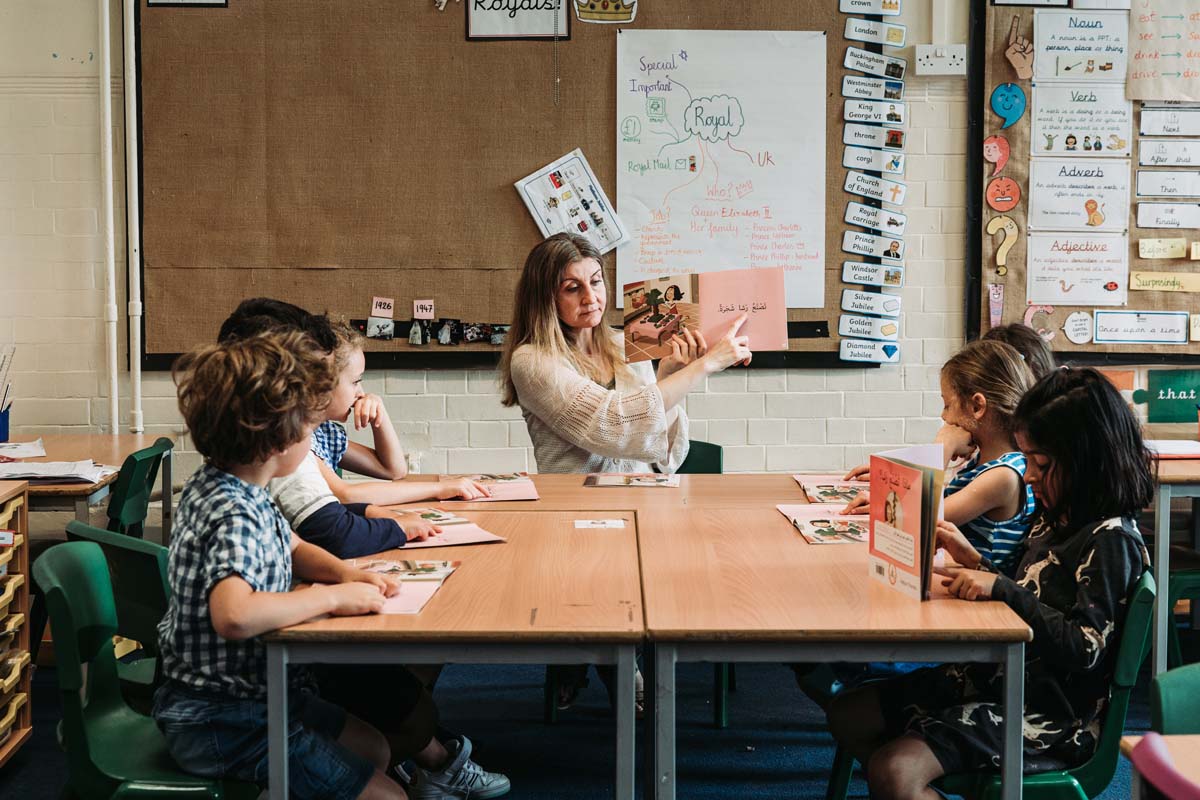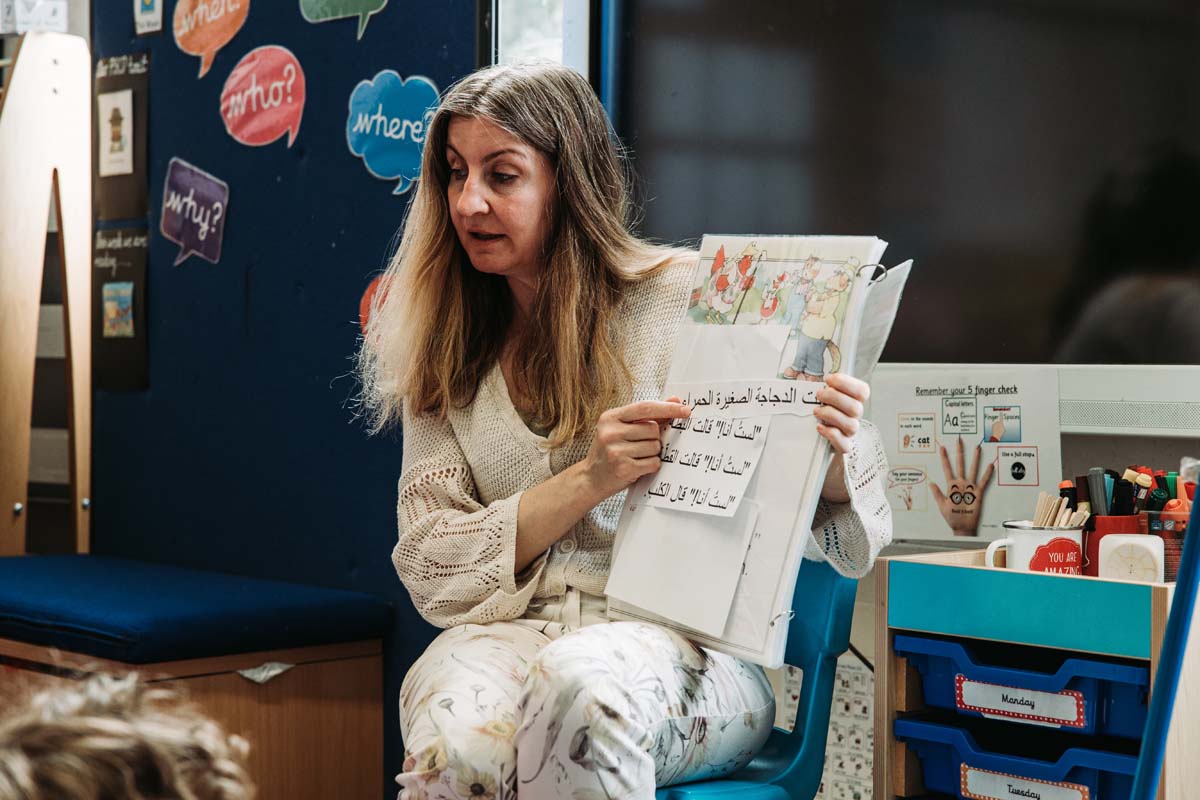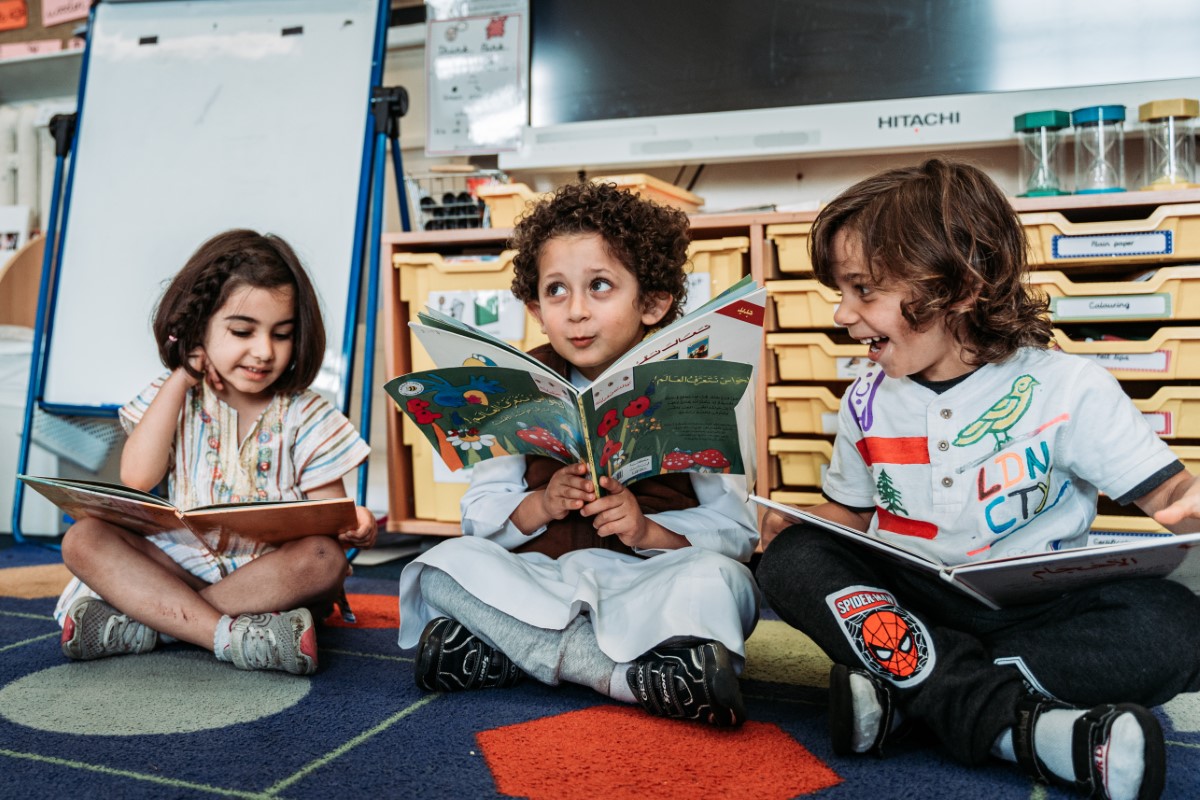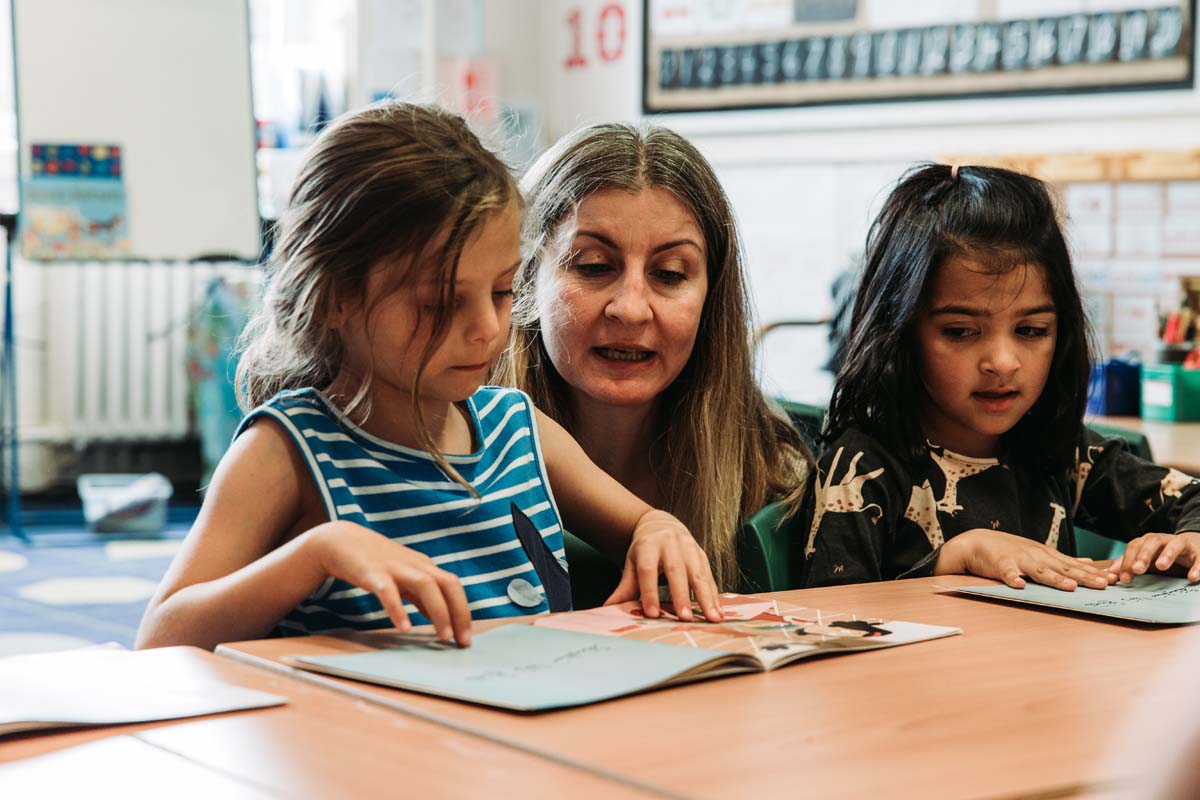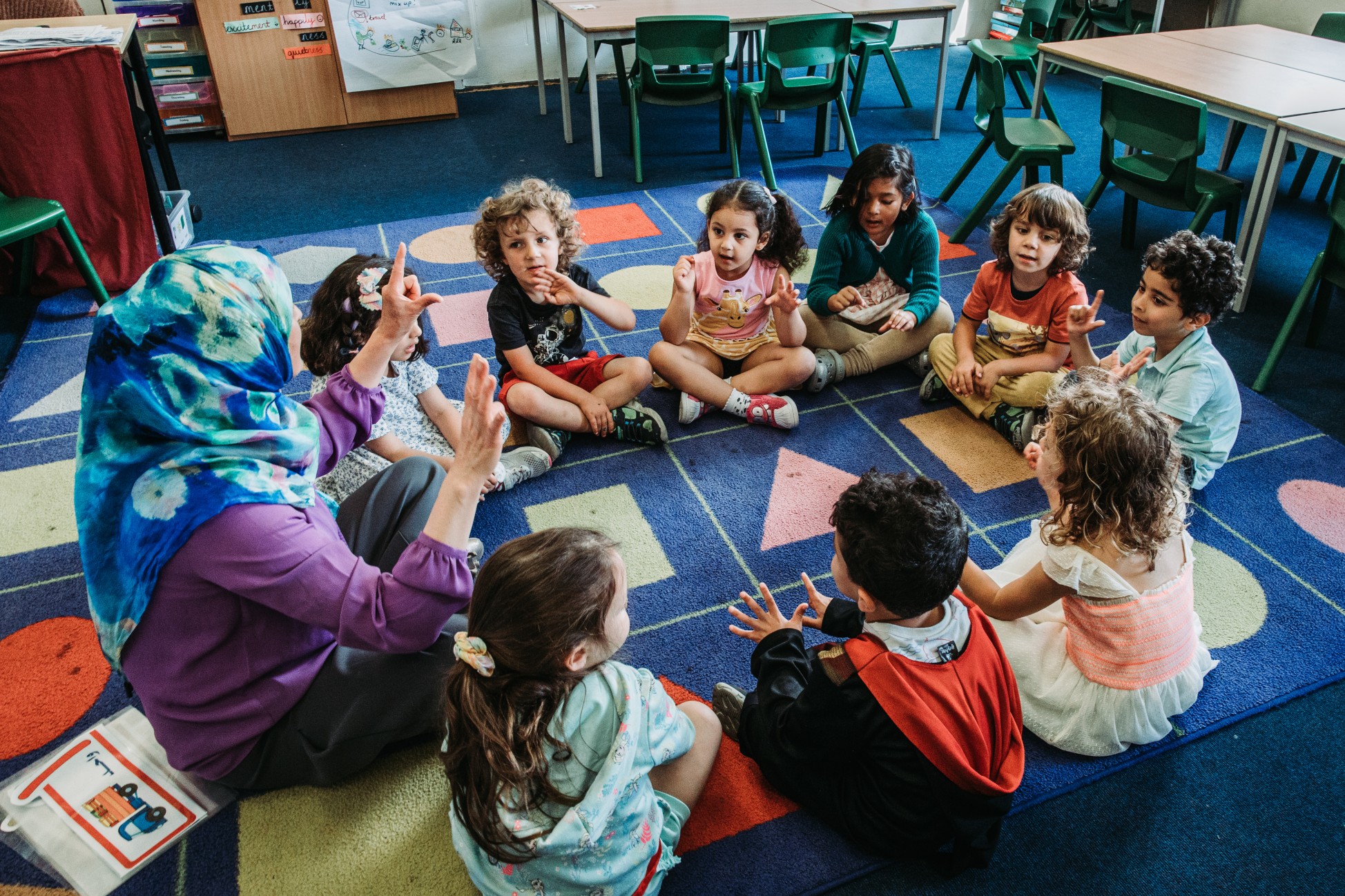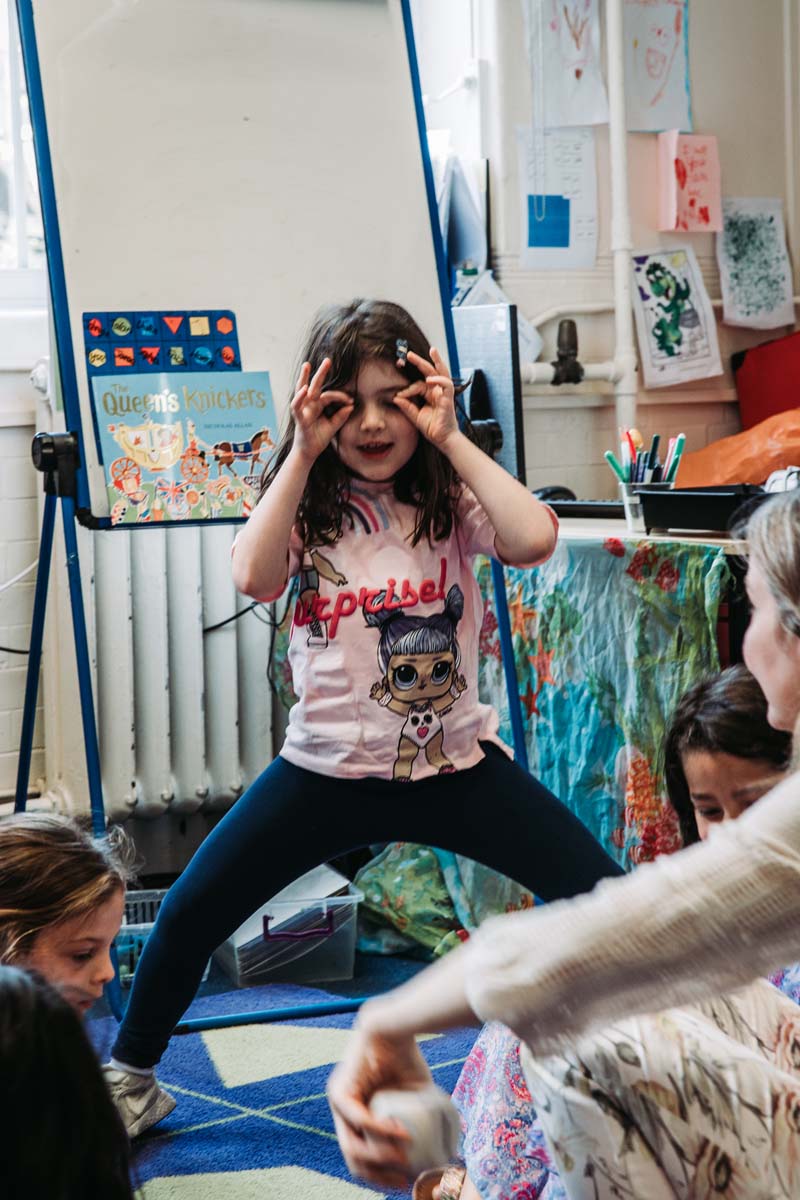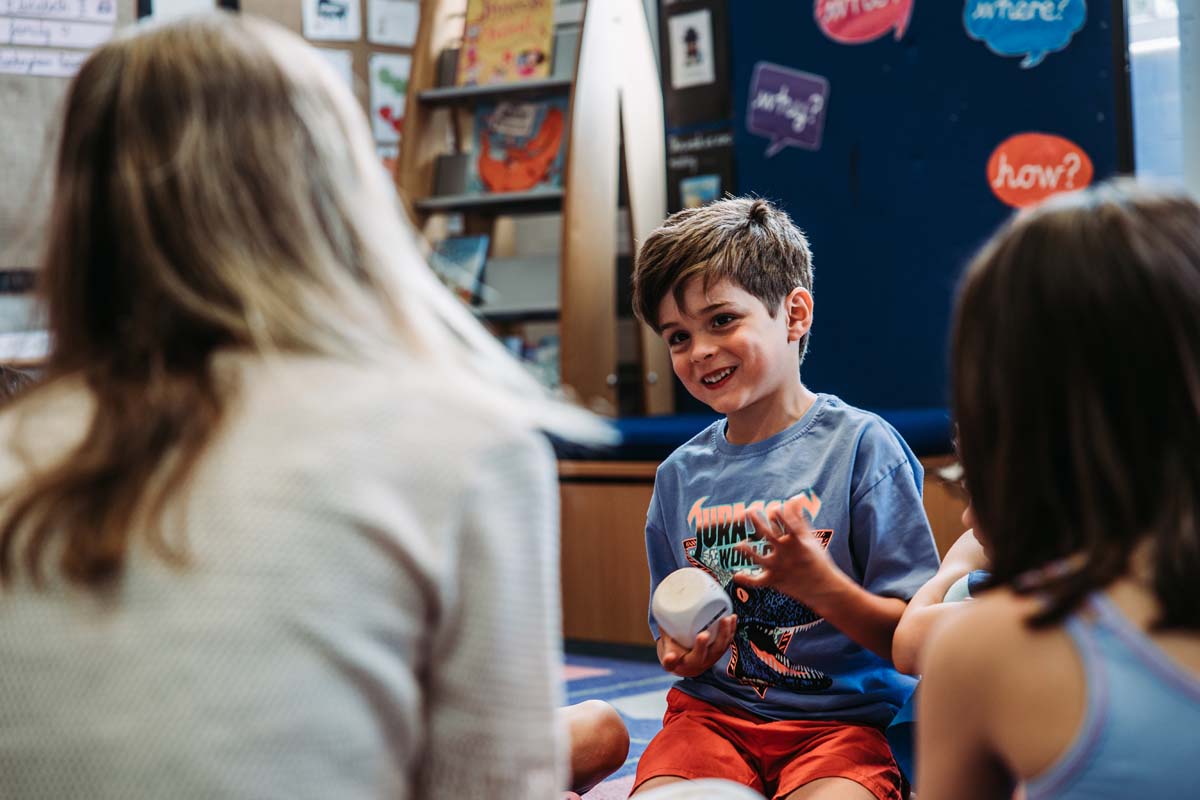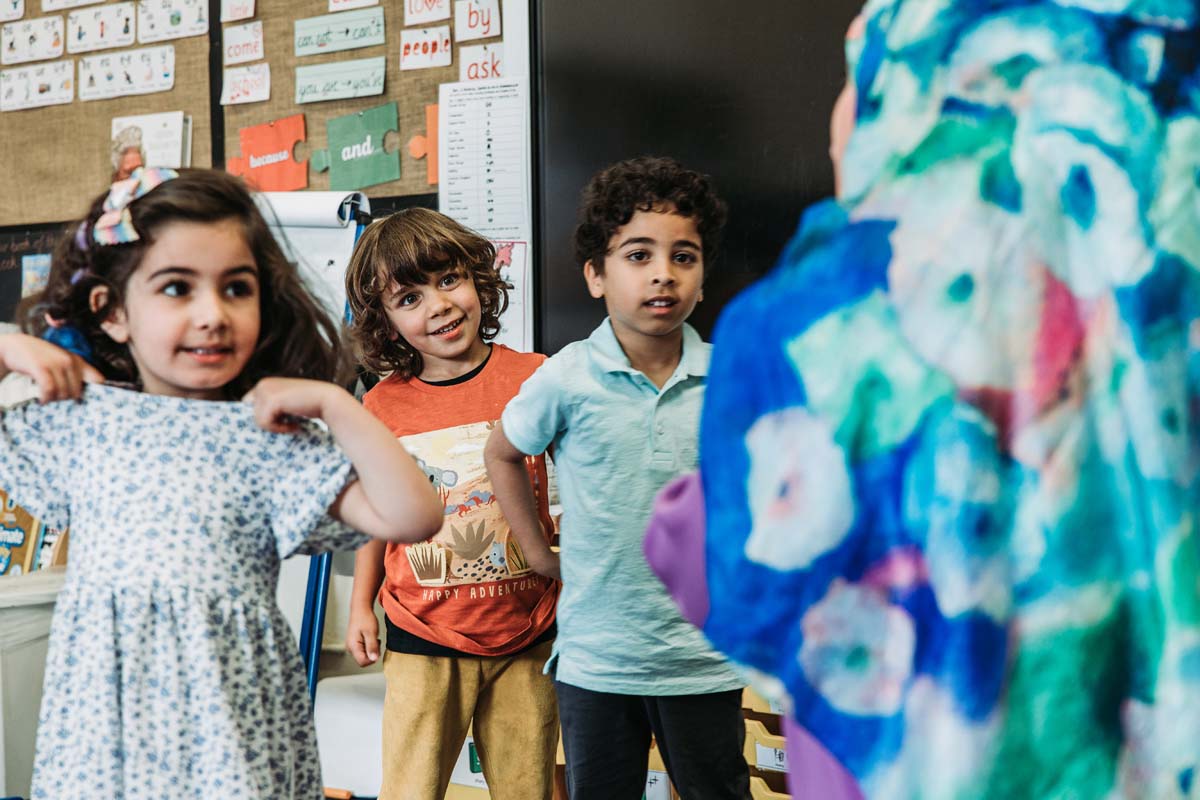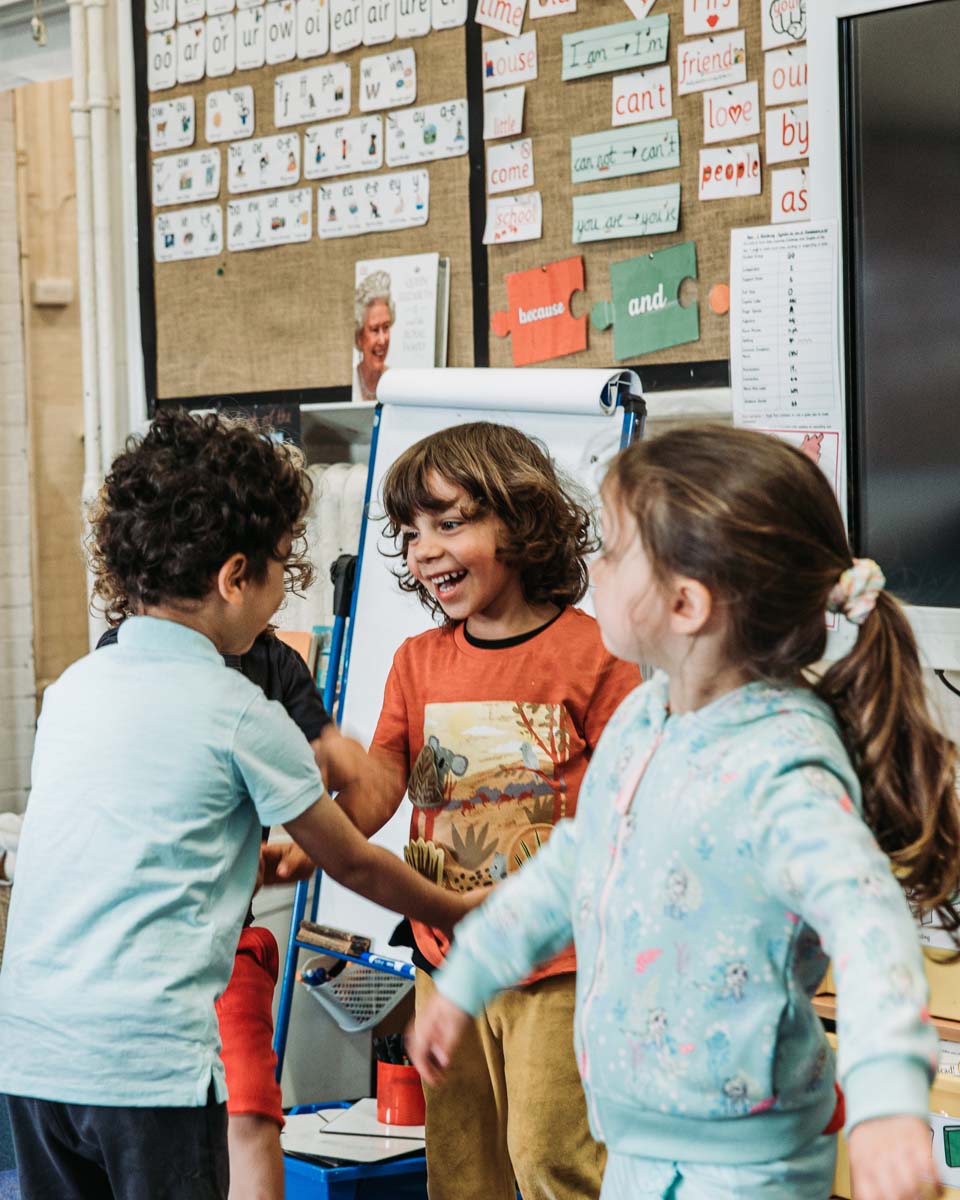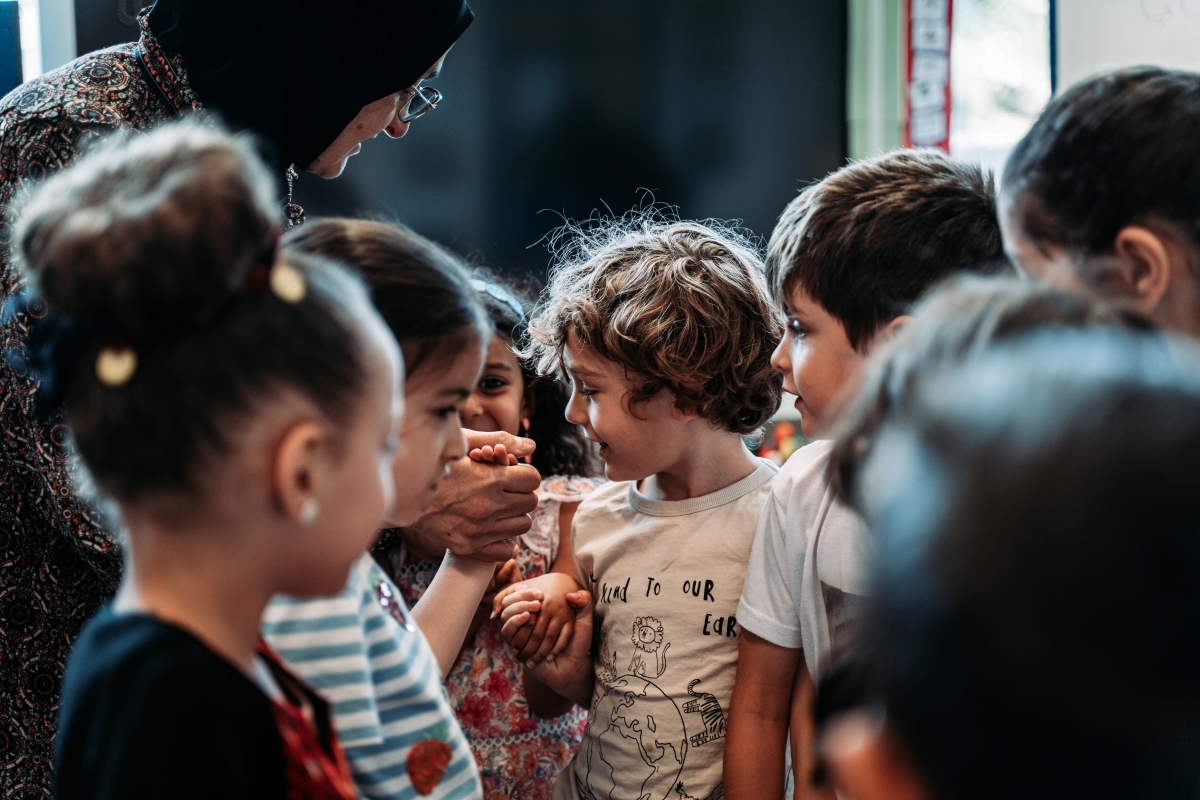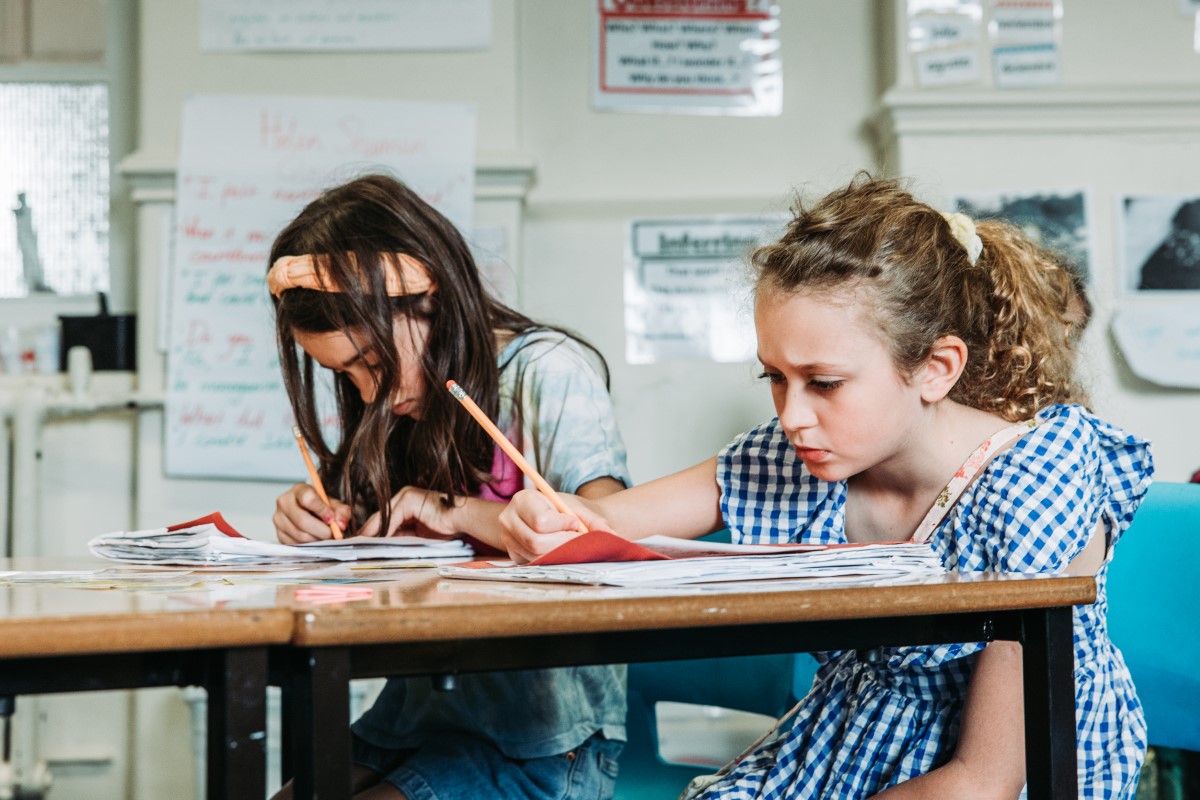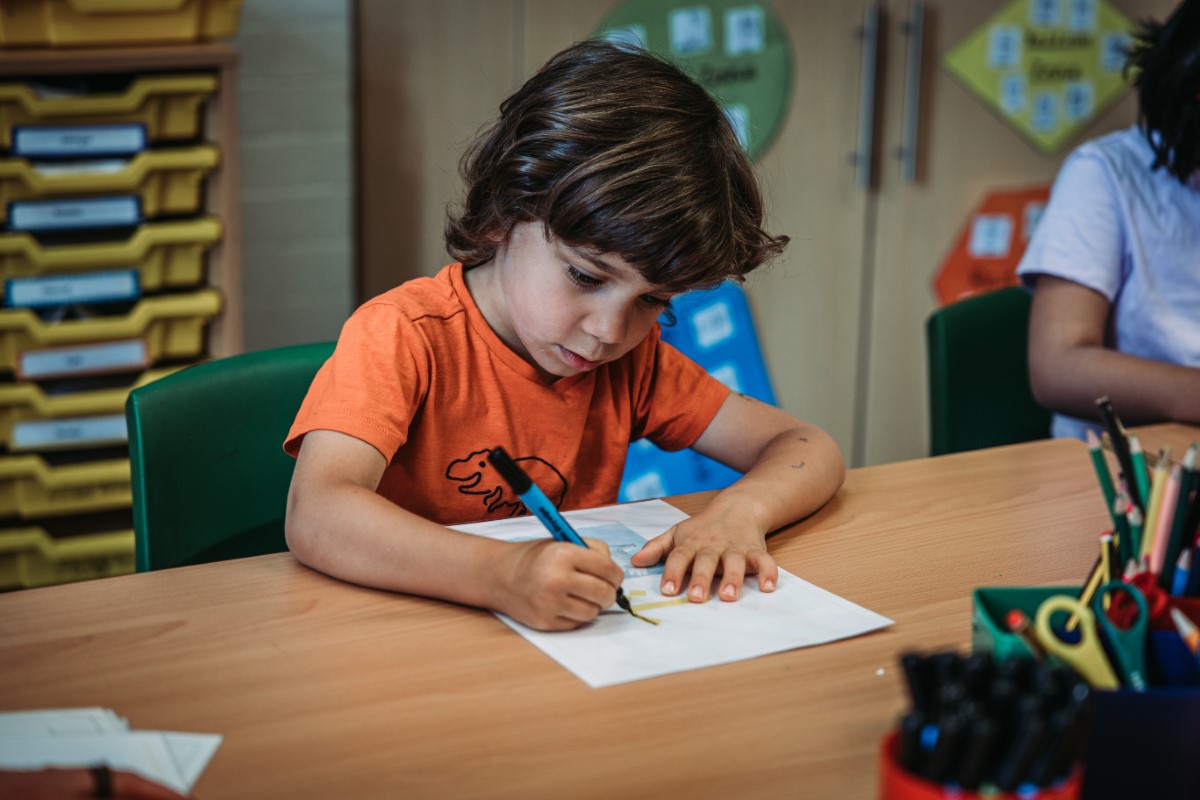At The Arabic Club for Kids (TACK), we want children to develop a love for Arabic! We follow a learner-centred curriculum approach where children’s interests, motivations and learning styles are at the heart of everything we do.
Communicating with others brings individuals into contact with diverse cultures and a range of language practices, contexts and purposes. Being able to communicate effectively involves flexibility and choice of style, register and language type. The skill also provides individuals with opportunities to improve their life chances through the skills they acquire from becoming bilingual/multilingual. This will in turn benefit the development of the economy.
Learners will demonstrate their progress in Arabic through increasing fluency and accuracy in the four skill areas of listening, speaking, reading and writing, as they develop communicative competence.
Learning to read and write in Arabic covers a range of skills, including print knowledge and phonics, phonemic awareness, vocabulary, comprehension and fluency. These are the basis of effective literacy instruction. The use of stories, both read aloud and read by pupils helps to develop a love of reading, both fiction and non-fiction. Spoken and received language learning enhances print literacy development in both native and other languages by focusing on what children are interested in doing and learning about. In this way, many opportunities to link oral and written communication are created.
Reading
TACK has researched and published a series of texts to teach reading skills in Arabic. These vibrant books offer plenty of opportunities for building oral and written language as the children learn to read.
We have developed a method of assessing reading progress that enables teachers to match books to the level of each individual child and fine-tune reading instruction to make sure that progress is consistent and sustained.
Speaking and Listening
Oral language is fundamental to learning. From the first days in school, speaking and listening play a large part of a child’s experience in all curriculum areas and teachers plan for a wide range of oracy experiences. Children have a range of planned oracy experiences, which are planned across the whole curriculum.
These activities include: – Structured play activities; – Drama; – Listening to and telling stories; – Paired/collaborative activities; – Extra-curricular and cultural experiences.
The TACK curriculum develops and encourages talk and communication. As we aim to develop Arabic communicative, literacy and intercultural skills, children experience a variety of different dialects as well as Modern Standard Arabic so that they choose ways to communicate meaningfully, appropriate to the situation.
Writing
Writing is taught through a combination of structured tasks and child-initiated activities. Writing for a purpose is at the heart of instruction. Shared Writing supports the oral construction of sentences, demonstrates use of letter forms in different positions within a word, models use of tanween and the connecting hamzat, with adults modelling and developing language, modelling correct grammar, and asking open-ended questions to encourage further thinking and discussion.
Independent Writing is encouraged across the whole age range by providing a range of meaningful purposes to write – through indoor and outdoor play, role play, art and craft, Maths and sciences activities and cultural experiences.

